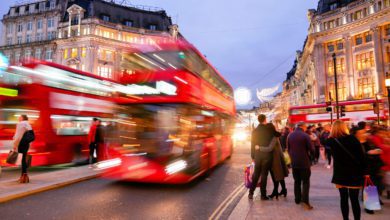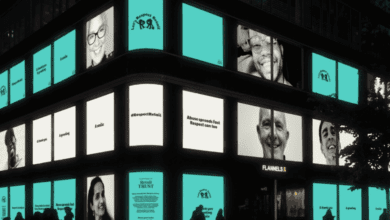What’s the secret of the forecourt store?

Register to get 1 free article
Reveal the article below by registering for our email newsletter.
Want unlimited access? View Plans
Already have an account? Sign in
While the struggles facing the retail sector have been widely reported over recent months, it seems forecourt stores are bucking the trend. However, with petrol sales in decline in the move to greener motoring, is their success sustainable and what might the forecourt store of 2040 look like?
At a time when CVAs and collapses across the retail sector dominate the news agenda, forecourt stores seem to have found the secret to driving sales and holding revenues. Even with the number of petrol stations falling across the UK – down from 14,000 in 2000 to 8,500 in 2017 – and petrol sales in decline, forecourt operators are taking advantage of the naturally high footfall that these sites attract and maintaining healthy profits as a result. Indicating the popularity of forecourt stores, BP has recently revealed that half of the customers visiting its forecourts purchase no fuel at all.
A shift in shopping habits means that convenience now trumps price for many shoppers, allowing forecourt stores to charge more than traditional corner shops or supermarkets. Moreover, efforts to modernise many of these stores, in partnership with well-known retail brands, mean that shoppers now associate them with a greater range of products than simply petrol and newspapers and they are spending more as a result.
When looking to maximise sales at forecourt convenience stores, research suggests that choosing the right site is a crucial factor. In 2017, half (51%) of the UK’s 8,430 forecourt stores, the majority of which were independents, were in rural areas. As such, positioning stores in locations as far away as possible from other retail services seems to be the preferred strategy. With growing numbers of forecourt store owners collaborating with established names such as Waitrose, M&S Simply Food and Costa Coffee, choosing a retail partner wisely is also important to help change perceptions and pull customers through the door.
In the effort to improve their offering and increase spend per customer, forecourt store owners should ensure their product lines are streamlined and adaptable to consumer preferences. As well as analysing point-of-sale data to identify profitable items and drive efficiencies, such as by stocking fresh food in smaller servings, it is also important to stay up to date with industry trends and ensure the store’s offering remains relevant to customers. For example, recent figures have revealed that the ‘treat mission’ is becoming a key driver
for shoppers visiting forecourt stores and where possible forecourt store owners should adapt product ranges and store layouts to make the shopping experience as appealing as possible.
Legislation due to take effect from 2040, banning the sale of new petrol and diesel engine cars, will undoubtedly have implications for the future of the forecourt store. A lack of certainty about the UK’s electric/hydrogen powered future also makes investing in new fuel technologies a risky business for store operators.
To ensure their business model is sustainable, constant innovation is required, which is likely to involve taking the convenience factor to the next level in order to attract consumers. The launch of Amazon Go in the US, a cashier-free grocery store, is an example of how technology can be used to enhance the consumer experience. With the growth of the Internet of Things (IoT), in future it may also be possible to create interactive shopping aisles, which bring customers tailored promotions based on their past spending trends. Offering additional services, for example, Amazon lockers, dry cleaning or a ‘click and collect’ platform can also help retailers to set themselves apart from competitors and overcome challenging trading conditions.
The ability of forecourt stores to hold revenues at a challenging time for the retail industry has put them in the spotlight in recent months. However, the transient nature of convenience shopping and a lack of clarity around the future of motoring means that their continued success is far from certain. By constantly evolving in line with consumers’ changing habits and preferences and carving out a niche in the market, forecourt stores may be able to continue attracting customers and defying negative retail trends for years to come.
Wei-Lun Wong is a principal consultant and retail sector specialist at management consultancy, Vendigital.







